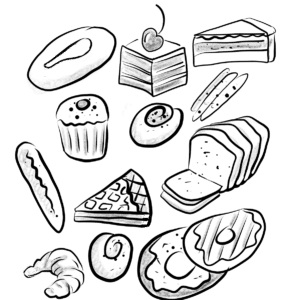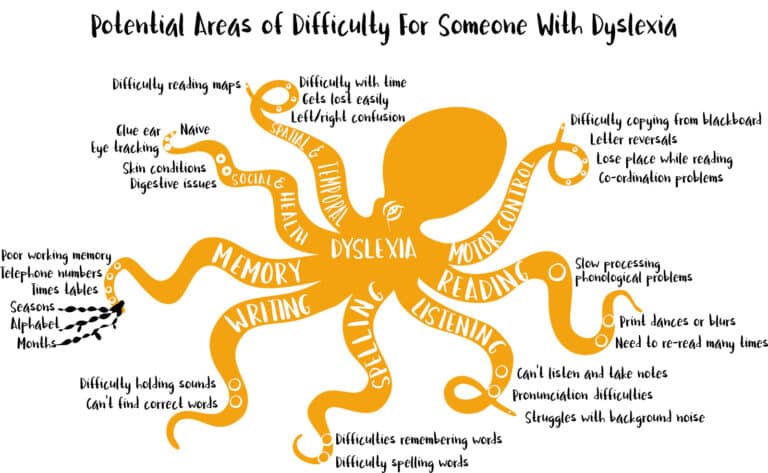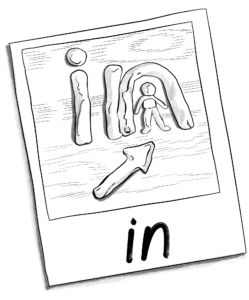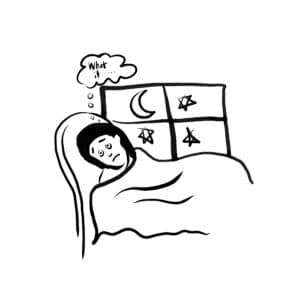
How Going Gluten-Free Transformed our Home
Hi, I’m Melissa, Beth asked me to explain how going gluten-free made a difference in our household. I have a

Harry couldn’t spot his name on the coat pegs at school, but because he was so young, I didn’t worry about it being a sign of dyslexia. When he got to seven and still struggled to read, he had him assessed.
Maybe you’ve noticed your child is taking longer than their sibling to learn to swim, gets lost easily, or says pasghetti instead of spaghetti.
When I was at school, I got by thanks to a mixture of hard work and being friends with the smartest girl in the year. Although I never had a problem reading, my spelling was… well, let’s say, creative.
When Harry was diagnosed with dyslexia, I started reading around the topic. Finally, I could put a name to the challenges I have faced all my life.
I discovered dyslexia came with eight areas of challenge. Being a picture thinker, I imagined these as the arms of an octopus and drew a mind map in the shape of this creature. I added the dyslexia challenges to its arms and wrote a book about it called Dyslexia. Wrestling with an Octopus. 10 Tips to Help your Child. In my book, I discussed these challenges at length. What follows is a brief overview.
A person may not struggle with every arm of the dyslexia octopus. Harry and I don’t, but between us, they have all tripped us up at one time or another.




I recently received an email from a Welsh dyslexia assessor who wanted to know where I bought my toy octopus.
“I want one. When I explain the challenges dyslexic people face using the arms of an octopus, the kids I assess can understand them.”
I hope you also found my octopus illustration helpful.
Thanks to https://www.lexxic.com/dyslexia for sponsoring this post.
To read how to teach spelling and reading in 30 minutes a day, click here.
Speechify is an app that can help dyslexic children as it reads online text. Here is my affiliate link.

Hi, I’m Beth. Seven years ago, when I discovered my son had dyslexia, I had a ‘light-bulb’ moment and understood this explained many of my own difficulties. Ever since, I’ve been on a mission to discover the best ways to wrestle what I like to call the dyslexia octopus.

Hi, I’m Melissa, Beth asked me to explain how going gluten-free made a difference in our household. I have a

I need nighttime anxiety relief. It’s 4 AM, and I’m reviewing what happened to Harry at school yesterday and wondering